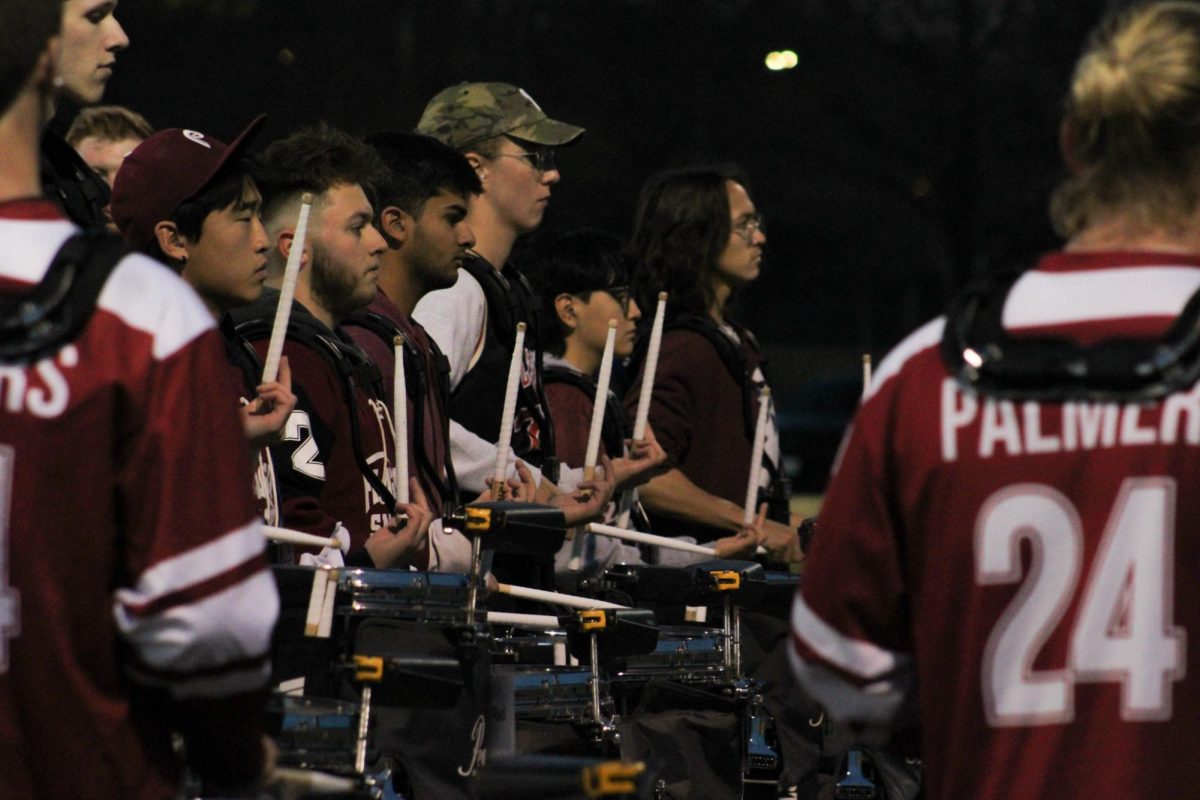
For months, there has been great hype surrounding Bruce Springsteen’s latest album, “Wrecking Ball,” which was released on Tuesday. In a February interview with the Telegraph, the Boss said that the album was his most political yet. As any fan of the E-Street Band knows, it is also the first release after the death of Springsteen’s longtime sax player and friend, “Big Man” Clarence Clemons last summer.
However, the show (or rather, the winner of 21 Grammy Awards) went on. The album lacks the fast-paced youthful fun of the earlier albums that made Springsteen famous, but it makes up for it in overwhelmingly honest lyrics, a great blend of folk and rock, and that wonderfully gritty voice that fans have come to love over Springsteen’s four decade-long career.
The title track starts simply, with just Springsteen and a guitar, before building up to include the rest of the E-Street Band. And what would a Springsteen album be without a reference to his home state of New Jersey? He proudly proclaims his origins in the first line of the song. The majority of the song gives off a feeling of quiet excitement, reminiscent of one of Springsteen’s earliest hits, “Thunder Road.” When the song explodes into a more fast and fun sound, the sax comes in, and unfortunately, it just isn’t the same. The song is great, but it could have been immortal with Clemons’ gritty sound.
Another song worth listening to is “We Take Care of Our Own,” which, along with “Wrecking Ball,” “Death to My Hometown” and “Land of Hope and Dreams,” Springsteen has been playing live for several years. The song has a nationalistic message, much more so than the often misinterpreted “Born in the USA.”
It has been three long years since the last Springsteen album was released, and the E-Street Band makes use of trends, some more successfully than others, that have developed since 2009’s “Working on a Dream.” Even rap makes an appearance. While its heavy folk influence (which has always been a part of Springsteen’s music, though only reassimilating back in mainstream music in more recent years) works wonderfully, the jarring and unnatural introduction of rap makes “Rocky Ground” the album’s weakest song.
The trio of “Easy Money,” “Shackled and Drawn,” and “We are Alive,” meanwhile, are perfect blends of earthy Southern folk songwriting supplemented with rock instrumentation. Springsteen’s working-class roots are beautifully woven in to the lyrics. This is one artist that never forgets where he is from. Unfortunately, “Shackled and Drawn” relies too heavily on a repetitive chorus, making it a prime candidate to eventually be pigeonholed into the realm of the bar song.
With “Death to My Hometown,” Springsteen travels outside of his Southern folk comfort zone, instead going to his Irish heritage. The Celtic instrumentals contrast wonderfully with the rebellious lyrics. Rebellion is a massive part of modern Irish history, though it also strikes a chord with the world’s economic and political climate today.
A tear or two may be easily spilled upon listening to “This Depression,” which is about hitting rock bottom. The song is disturbing. Normally there is an emotional silver lining to Springsteen’s songs about tough times, but there is none here. Along with “Jack of All Trades,” the aftereffects of Clemons’ death are evident.
Thankfully, Springsteen does not abandon his fans to the emotional lows of “This Depression.” He follows with “You’ve Got It,” a simple song about love. The influence of the American Southeast is clearly present in the warm music.
The Boss is back with “Land of Hope and Dreams.” Everything about the song brings back the big, carefree sound he was known for in the 1970s and ’80s. It is a nice break in an album that has such dark undertones.
Two bonus tracks are included in the deluxe edition of this album, “Swallowed Up” and “American Land.” Each Springsteen album of recent years has one storytelling song, and this time, it is “Swallowed Up.” When compared to other Springsteen story songs, like “Devil’s Arcade” or “Outlaw Pete,” it is noticeably quieter, though not lacking in the fire that made the other two such strong songs.
“American Land” closes the album on a cheerful note, thankfully. One might complain that it is not reflective of the tone of the album as a whole, but the high note is needed.
The layout of the album ensures an emotional roller coaster for the listener. Though it deviates from Springsteen’s typical bombastic sound (which is ironic, given its title), “Wrecking Ball” is just as worthwhile to listen to for the lyrical messages, the emotional ride and the diversified instrumentals that Bruce Springsteen has so articulately mastered.
Alissa Mesibov can be reached at [email protected].













Mark • Mar 14, 2012 at 2:22 pm
Alissa, the sax on the title track is Clarence.